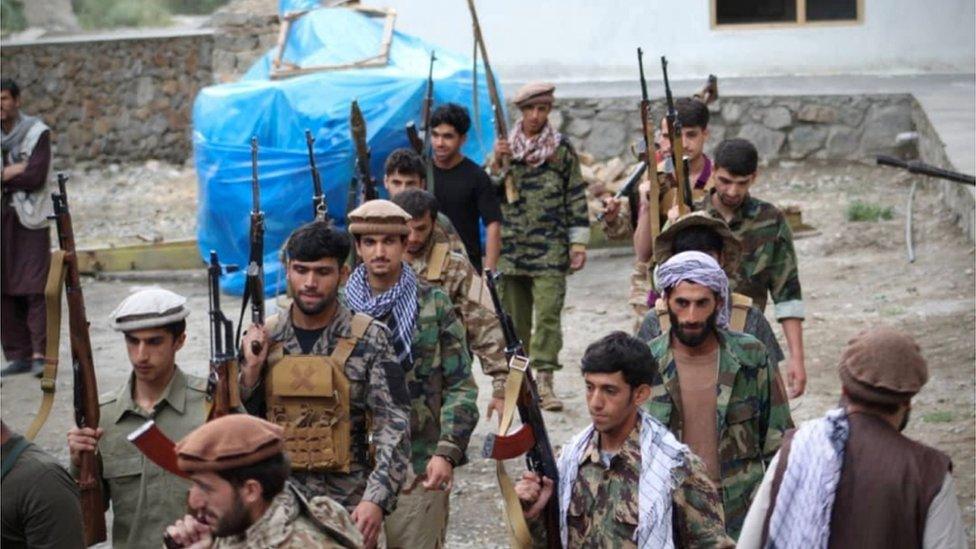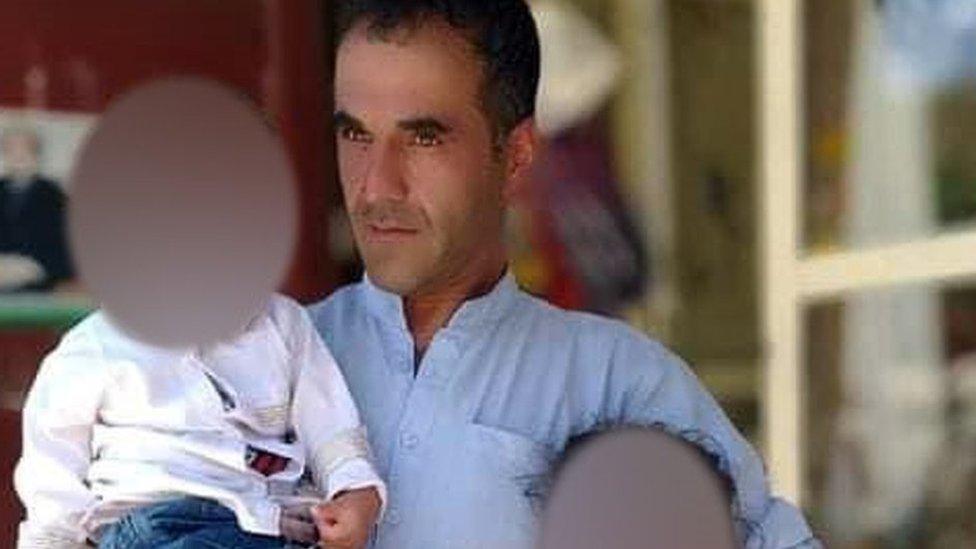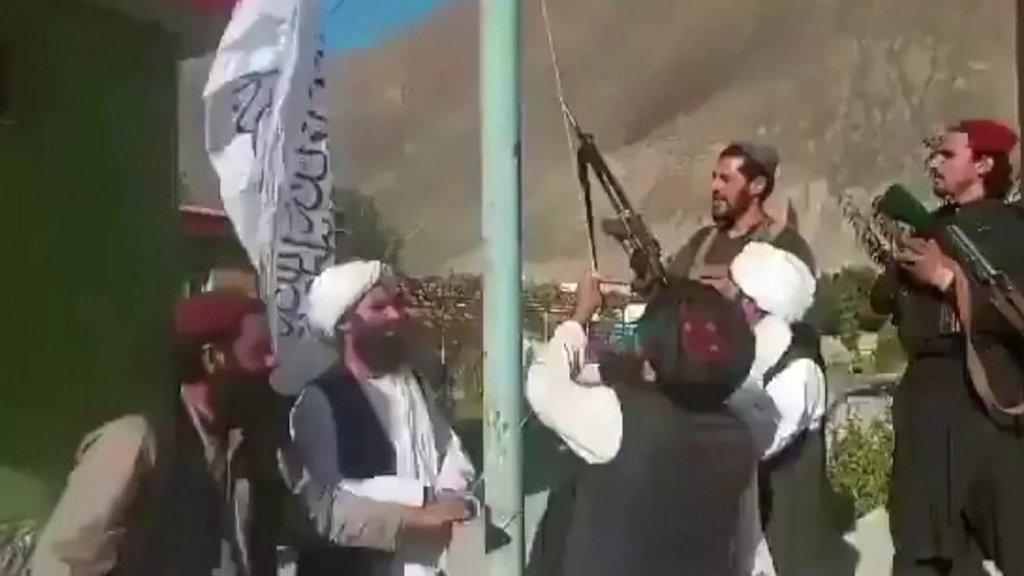Afghan resistance attack Taliban, sparking reprisals in Panjshir
- Published

National Resistance Front of Afghanistan (NRF) fighters, pictured last August
The Taliban have been accused of human rights abuses during clashes with resistance forces in Panjshir province, to the north of Kabul.
One local resident told the BBC his unarmed elderly relative had been shot by the group, who seized power in Afghanistan last August.
Another saw a neighbour beaten by the Taliban until he fell unconscious.
A local Taliban spokesman denied any abuses had taken place or that any of the group's members had been killed.
The fighting is localised and at this stage does not represent a challenge to the Taliban's control of the country, but it is the most significant sustained armed opposition the group has faced since coming to power.
Panjshir was a bastion of anti-Taliban resistance during the group's first stint in power in the 1990s.
In recent days, fighters belonging to the National Resistance Front launched a guerrilla attack on Taliban forces in the area, who responded by sending a large number of reinforcements to Panjshir.

The NRF is headed by Ahmad Massoud, the son of a legendary anti-Taliban fighter, who fled Afghanistan following the Taliban takeover.
The group is also supported by some former commandos who used to be part of the Afghan army.
Speaking on condition of anonymity, local sources told the BBC the fighting erupted over a religious dispute. They said the Taliban attempted to arrest a Panjshiri cleric who had decreed the Muslim festival of Eid should actually be celebrated a day after the Taliban said it should.
Taliban forces were ambushed and a number were allegedly killed - something Taliban officials have denied.
Details on casualty figures, and even the extent of the fighting, are difficult to ascertain. The Taliban appear to be downplaying the clashes, while claims by the NRF often seem exaggerated.
Two local sources said that about 15 unarmed civilians had been killed by the Taliban in Panjshir so far.
Clashes initially centred around the valley of Abdullah Khel, though local sources said the fighting there had now finished.
Watch: Taliban fighters raise their flag in front of the Panjshir governor's office last year
Residents described hundreds of villagers leaving their homes and heading to the mountains in fear of advancing Taliban fighters.
One villager said his elderly male relative had stayed behind at home, but was ordered by Taliban members to point out the houses of resistance fighters.
He and another man were then shot dead, the villager alleged.
"He wasn't armed and didn't have any link with any group," he said.
It is difficult to verify the exact circumstances around the killings, but the BBC has seen photographs of the bodies of the men.
A request by the BBC to visit the area was rejected by the Taliban.
Another resident of the area told the BBC that one of his relatives had panicked during a search operation by the Taliban and began running away from them. He was shot and killed.
Footage shared on social media shows large numbers of men being detained by Taliban forces.
Residents told the BBC they believed hundreds had been arrested, while they alleged some local elders were temporarily detained in order to try to secure the surrender of resistance members.
A local source in Abdullah Khel said the vast majority of men had now been released by the Taliban.
One resident told the BBC his elderly neighbour's name was on a list drawn up by the group, accused of being in the resistance.
The source said when the man denied the allegation, or owning any weapons, he was "kicked, punched and beaten with the butt of a rifle until he fell unconscious".
A spokesman for the Taliban in Panjshir told the BBC no fighting had taken place in the province, though another local Taliban official had earlier told Afghan outlet Tolo News that six Taliban members had been killed in clashes.
Sources in Helmand province in the south told the BBC the bodies of 15 fighters from there had been flown back from Panjshir.
Clashes and allegations of humans rights abuses have also been reported in other parts of Panjshir, as well as in Andarab, a nearby district in Baghlan province and Warsaj in northern Takhar province.
All are dominated by members of the Tajik ethnic group, whereas the Taliban are Pashtun-dominated.
Related topics
- Published13 September 2021

- Published7 September 2021
